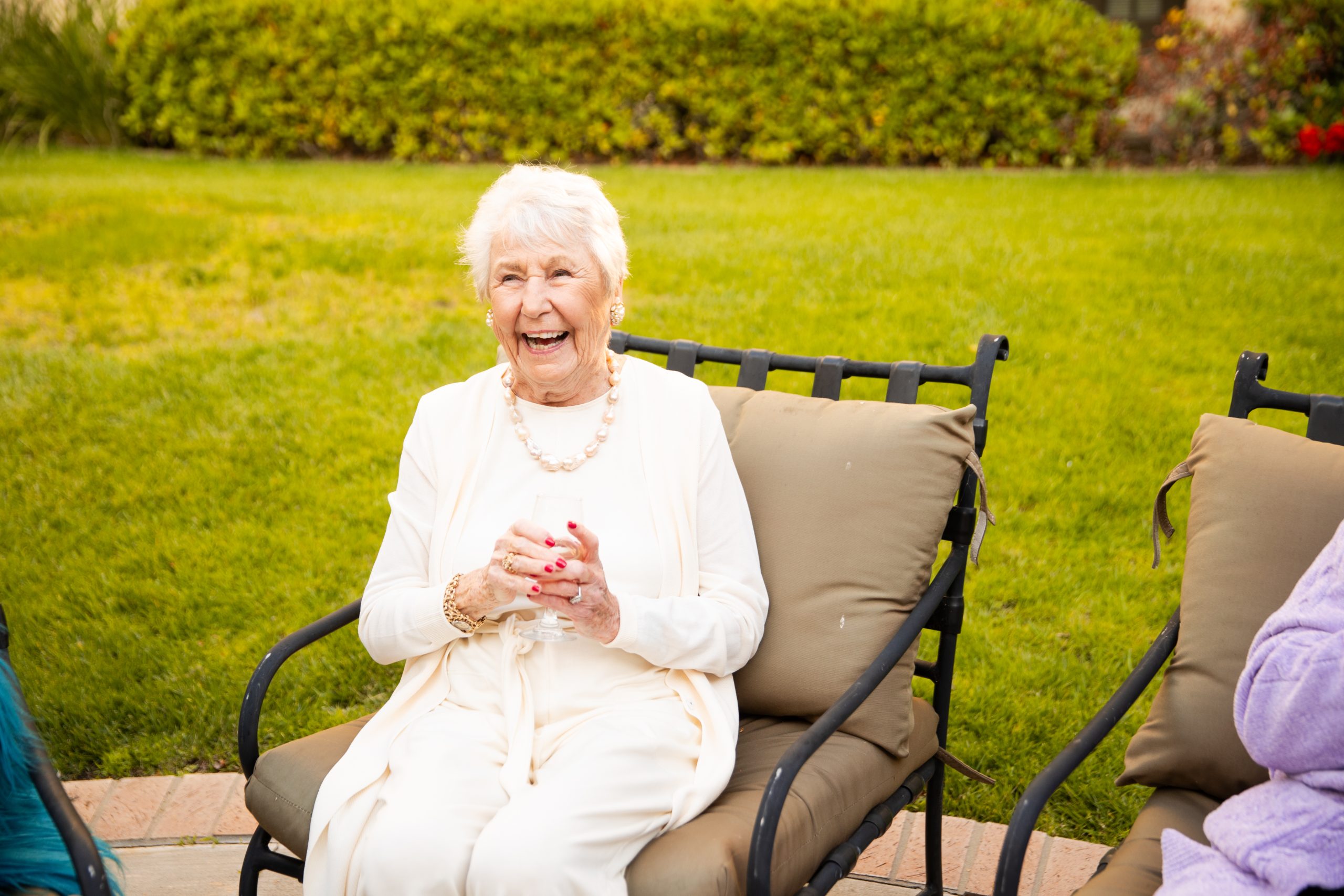Stages of Dementia

Dementia is a brain disorder that is most commonly known for affecting memory. It doesn’t refer to a single disease, but rather a collection of symptoms relating to memory, language, motor skills, thought, and other areas of brain function. It typically appears in older adults, but it is not a normal symptom of aging. It’s a potentially debilitating disease that should be treated as soon as it’s recognized. There is no cure, but early recognition and treatment can help improve your loved one’s quality of life despite the disease.
There are 120 types of disease that present with dementia symptoms. Although Alzheimer’s Disease is often used interchangeably with dementia, it’s only one form. Different types of dementia have different causes or may affect different areas of the brain, leading to a slightly different presentation of symptoms. For example, Vascular Dementia may be caused by strokes, high blood pressure, or other vascular disorders leading to impacted blood flow in the brain. Fronto-Temporal Dementia typically affects personality more strongly than other types due to the area of the brain it affects. There can also be multiple causes or affected areas of the brain, referred to as Mixed Dementia.
Although the following symptoms represent the way the disease typically presents, it’s not a guarantee. Because every person is different, certain symptoms may appear during different stages of dementia, progress at different rates, or not appear at all.
Early Stages of Dementia
While small lapses in memory can be a normal part of aging – occasionally misplacing their keys or forgetting an appointment, for example – the memory loss indicative of dementia is more frequent, and tends to be paired with other symptoms. In the earliest stages, it may look more like this kind of forgetfulness, but if your loved one is forgetting things often, or shows other concerning symptoms, it might be worth getting them checked out early.
In the very first stages of the disease, symptoms may be very mild, but if you’re paying attention, they can add up. Confusion or brain fog can be an early indicator, as can language processing issues or misunderstandings. They may have difficulty remembering how to do basic tasks such as cooking, cleaning, or dressing themselves.
Forgetting basic things can be disorienting and scary, so one of the best ways you can support a loved one in the first stages of dementia is to reassure them. Try to stay calm, even when they’re getting frustrated, and help them establish routines to make remembering tasks easier. They may feel like they’re losing control, so try not to take too much of that control away from them. Instead, encourage them to create their own routines and reminders, and then help them follow through.
Mild Stage of Dementia
As the disease progresses into the mild stage, memory problems may start to worsen or become more obvious. They may start forgetting things that are less trivial, such as details of major life events, or have trouble retaining new information.
Another early symptom of dementia might be language or communication problems. They may forget a common word, or lose track of a conversation. Issues with orientation or visual perception may also be a sign. A loved one with dementia may get lost in a once-familiar neighborhood or misjudge a distance such as the height of their stairs. They may also have difficulties making plans or decisions, as the disease can impact their ability to think through things clearly.
Finally, changes in mood or personality can also indicate something more than typical age-related forgetfulness. People with dementia often experience anxiety, depression, or irritability. They may be scared that they’re forgetting things so often, or frustrated at their newfound difficulty doing basic daily tasks. In Fronto-Temporal Dementia cases, their behavior may also be altered, but this is less common early on in other forms.
Supporting a loved one in the mild stages of dementia largely relies on setting routines. Helping them schedule their day around important steps such as taking medication or eating meals can give them a sense of stability and make it easier for them to remember such things. Scheduling reminders through a phone or smart device can also help, especially when you’re not around to remind them in person. Consistency is key, as repetition is an important part of making and retaining memories.
Moderate Stage of Dementia
By the moderate stage of progressive dementia, memory symptoms associated with the disease may have worsened to the point of forgetting recent memories. They may forget new acquaintances entirely and may even find it hard to recognize close friends or family members. You may find your loved one is asking the same questions multiple times, having forgotten the answer, or even that they had already asked.
Linguistic symptoms may worsen as well. They may get stuck trying to find the right words, or they may forget what they’re talking about mid-sentence. Their speech patterns may change, and they may lose track of conversations easily.
At this stage, your loved one may have difficulty orienting themselves, not just in space, but also in time. They may forget what time of day it is, thinking it’s time for bed in the early afternoon, or getting up and dressed in the middle of the night. They may also forget where they are, even in familiar spaces such as their own home.
One of the scarier symptoms to appear at this stage may be delusions or hallucinations. As the brain continues to degrade, they may start to see things that aren’t there, or become paranoid that people are out to get them, even loved ones. This can be very difficult for both the afflicted person and their caregiver.
To support someone living with dementia through this stage, keep them active in ways that they can be. Find activities they can do around their own home, such as cooking, cleaning, or light exercise. When it comes to memory lapses and delusions, doctors recommend meeting the person where they are. Try not to correct them too often when they make mistakes or misremember details. They may feel defensive, or it may make them fearful of their worsening condition. Play along when it’s safe and healthy to do so.
Make sure you’re taking care of yourself, as well. Taking care of a loved one living with dementia can be emotionally taxing, and caregiver burnout is common. If you don’t protect your own mental health, you may find yourself dealing with depression, anxiety, insomnia, or other health problems. You may even feel angry at the person or the situation. This is normal, but it’s important to seek help if you start to feel this way.
At this stage, it may be appropriate to start looking into senior living communities. Introducing them into a community early may make the transition easier, as they’ll still be more able to reorient to their new surroundings. Entering a care community early on means they can still help make the decision and express their preferences and needs to the staff. They can also help create a routine with the care team that can continue to be carried out if they start to decline. Senior care can also provide them with a maintenance-free home where all the cooking, cleaning, and gardening is taken care of, so they can focus on the things they’d rather spend their time on such as hobbies.
If you’re starting to experience caregiver burnout, a retirement home can also help you, as much of the care is passed on to the support staff while you simply enjoy the company of your loved one. This also gives you time to research before you choose a community. There are plenty of resources to help you and your loved one make such an important decision.
Severe Stage of Dementia
As their memory continues to decline, a person with dementia may start to experience what’s know as “time shifting.” In such cases, their recent memory is so damaged that they believe they are living in an earlier time of their life. They may no longer recognize family members, friends, or even their own face, because they only remember a much younger version of the person. They may even believe long-gone friends or family are still alive, and ask to see them. This can be especially difficult, as reliving the loss may upset them.
Language may also continue to decline, and they may revert to child-like speech patterns. If the disease progresses far enough, they may become non-verbal entirely, though many people living with dementia are still able to communicate through facial expressions, rudimentary sign language, or other non-verbal cues.
Because of the way dementia works, the degeneration in the brain may lead to other complications. In the latest, and most severe stages of the disease, a loved one may suffer from loss of many bodily functions. They may be unable to relieve themselves properly, have difficulty eating and drinking, and lose their balance more easily when walking. Eventually, they may lose most or all of their mobility.
Supporting your loved one at this point may include tasks such as preparing meals and feeding them, helping them move around the house, and helping them empty their bladder or bowels. They may be frequently confused or believe they’re living in a different time, so as in the previous stage, it’s best not to argue with them. Let them believe what they need to in order to remain calm, and only correct them if it’s necessary.
End of Life Stage of Dementia
Realizing that the end stages of the disease are approaching can be very hard on you and their other loved ones. They may look and act very differently from the person you once knew. Watching a loved one decline is one of the most difficult parts of any life-limiting illness.
In the final stages of dementia, it may be a good idea to consider hospice care or a senior living home, if you haven’t already. The routines and amenities of a retirement community can help keep them comfortable, and the support staff available can help take some of their care off your plate and prevent burnout. A senior living community gives them a home they don’t have to maintain and a routine they don’t have to plan, meaning they – and you – can focus on enjoying the time they have left.
Find Support for Your and Your Loved Ones With Senior Resource Group
Dementia is a debilitating disease that affects many parts of the brain. Over the different stages of dementia, a person may experience symptoms such as memory loss, language difficulties, disorientation, and even physical decline. For caregivers, it can be very difficult to watch a loved one decline, so taking care of yourself is just as important. A senior care home can help relieve some of that burden.
At Senior Resource Group, we want to help your loved one be as comfortable and well cared-for as possible. Our network of retirement communities offer a home for your loved one where all of the maintenance is handled for them – and for you. Contact us to learn more about our communities and the amenities we provide.




